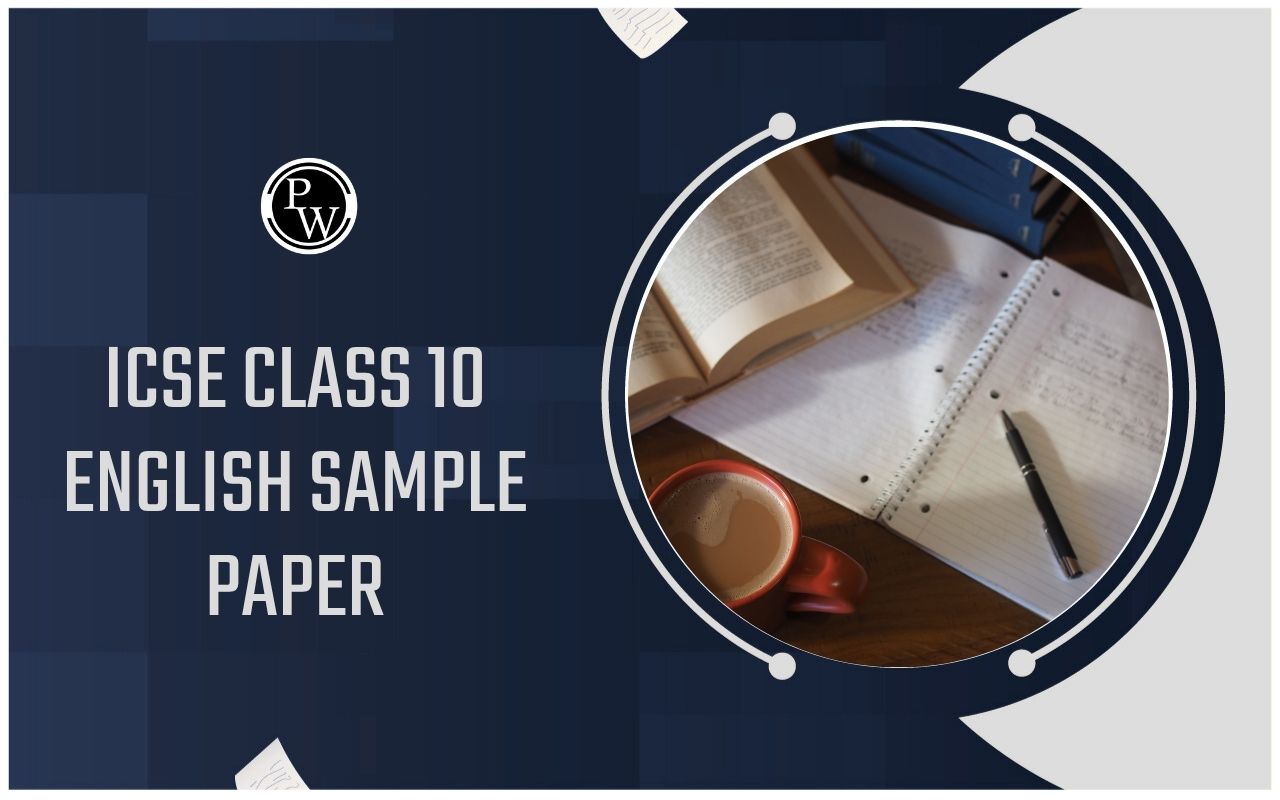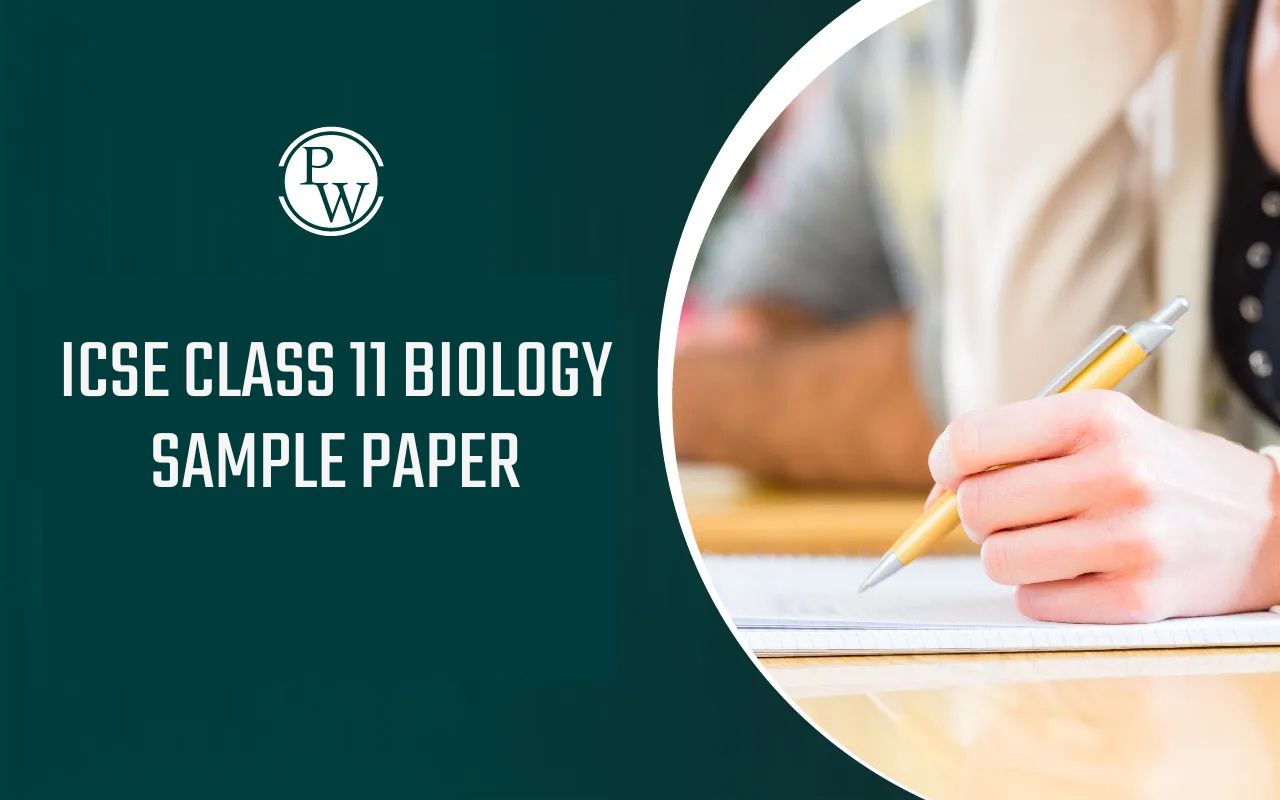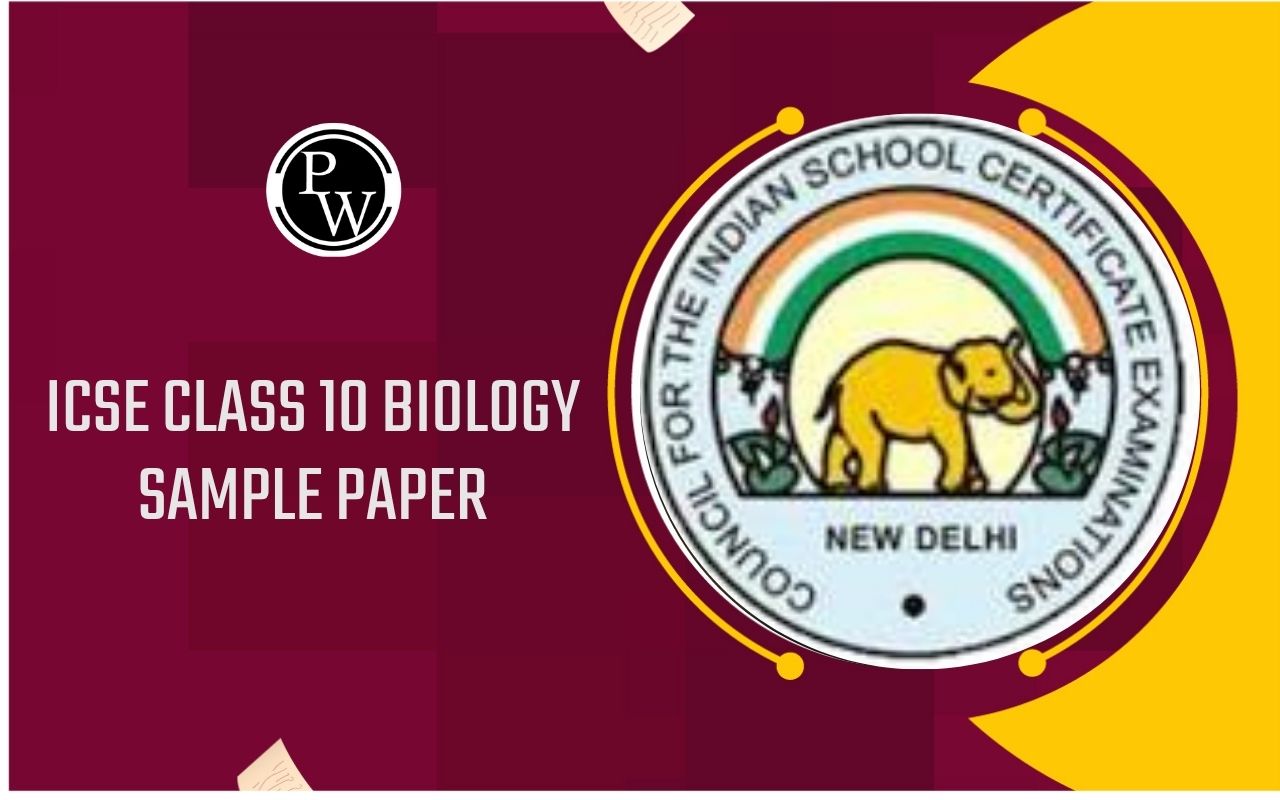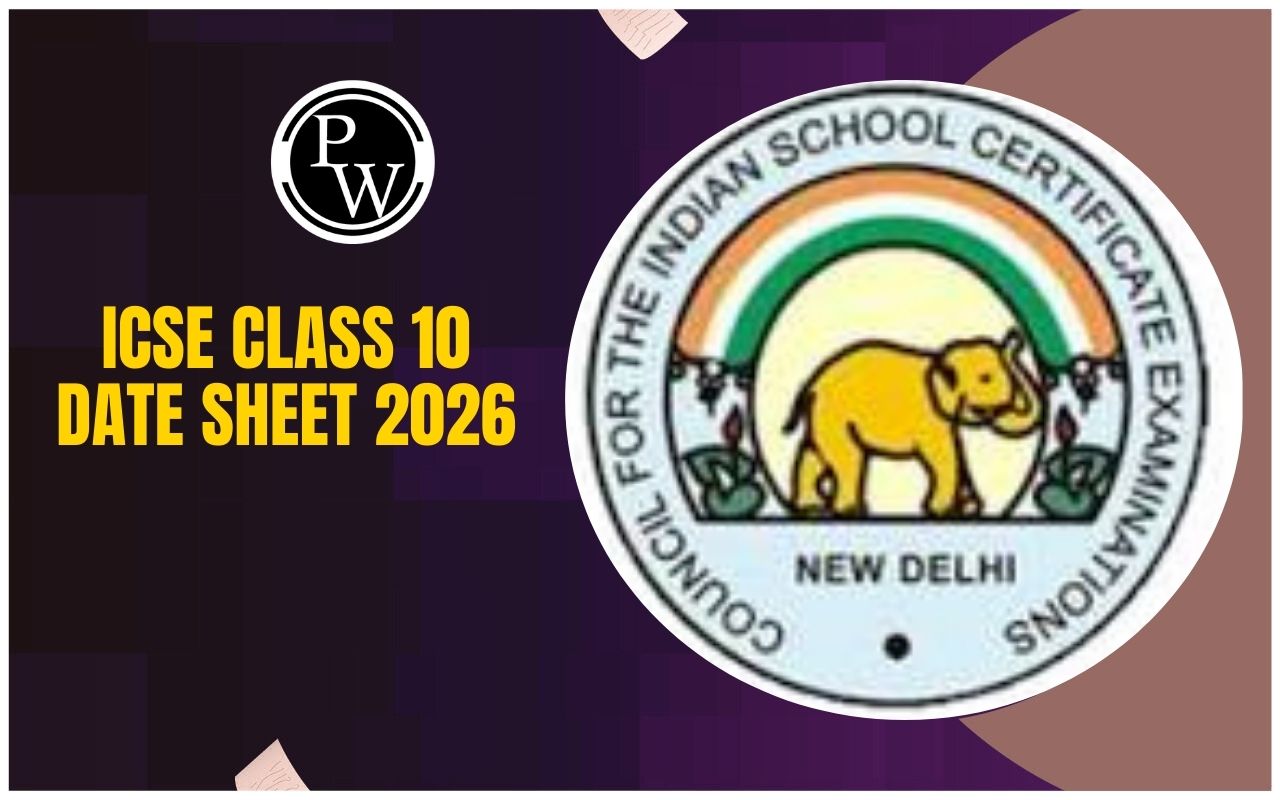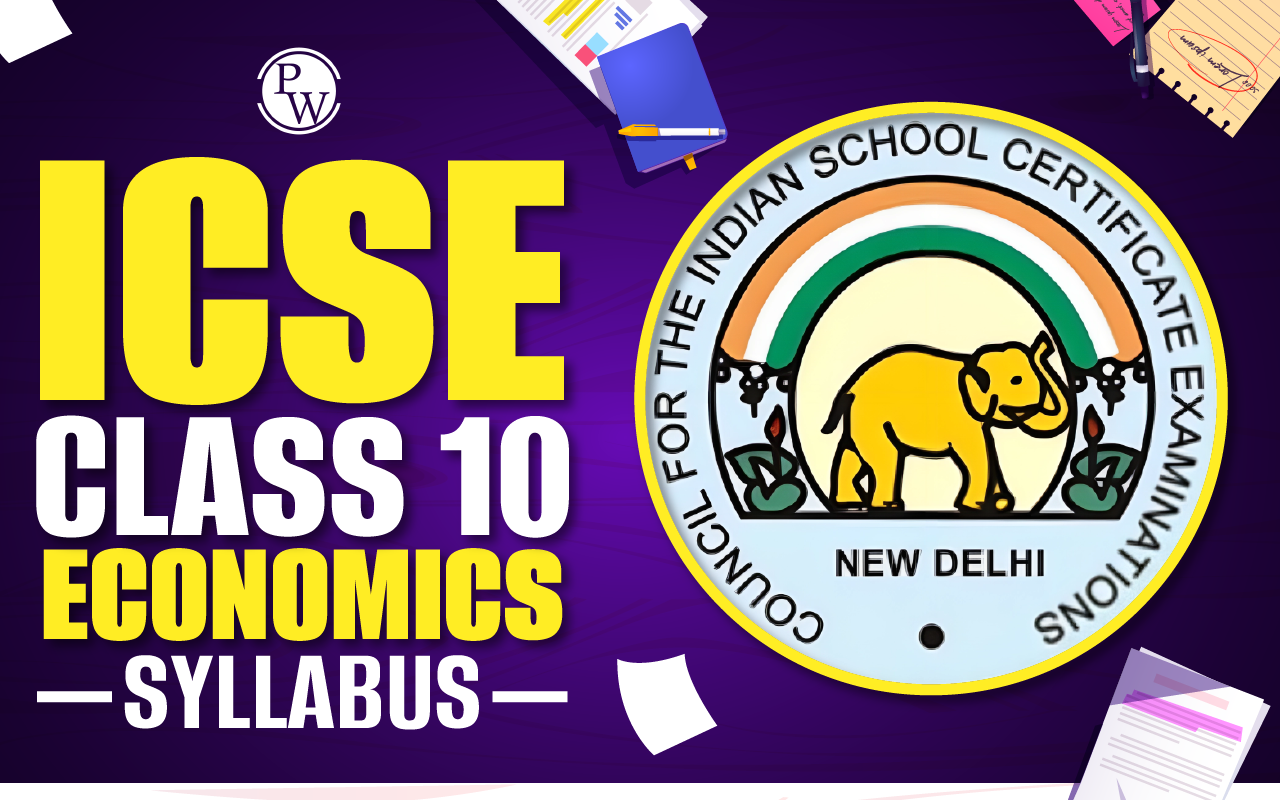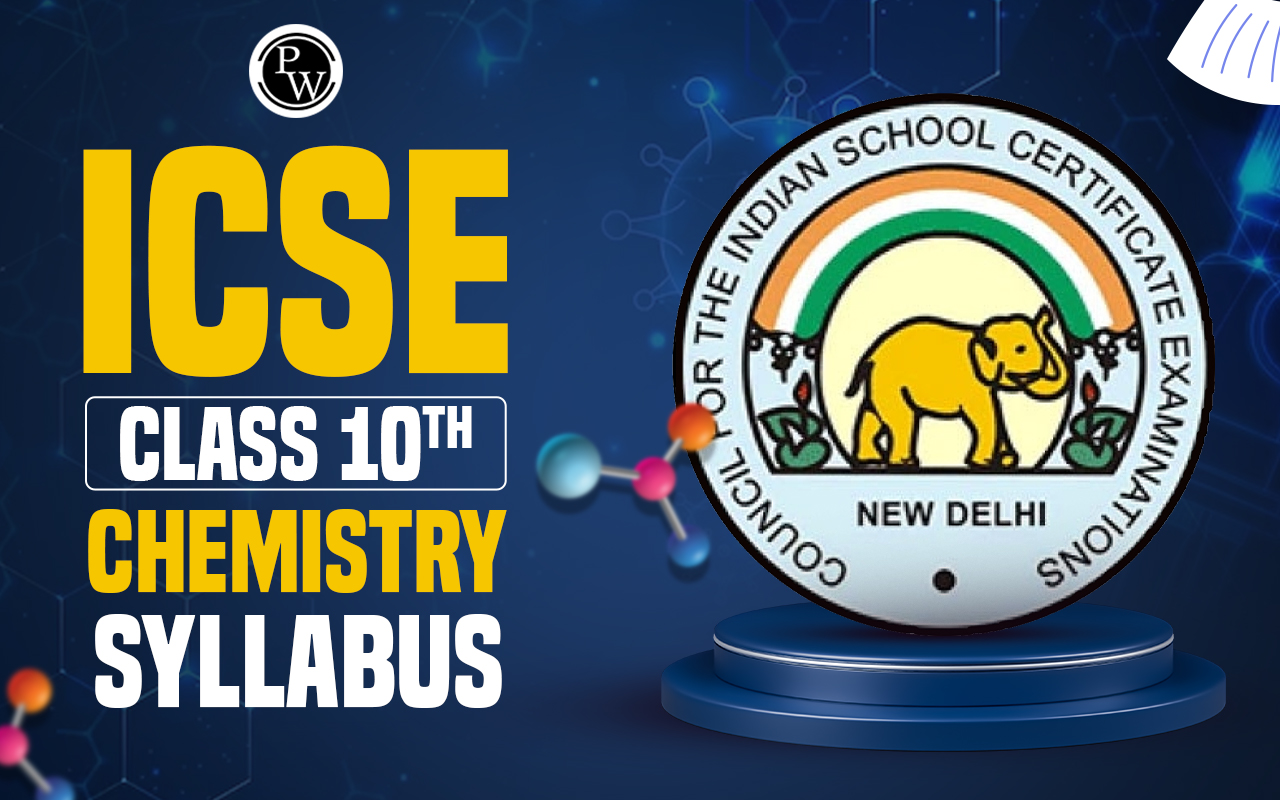
The ICSE Class 10 Economics Syllabus 2025–26 provides students with a clear understanding of fundamental economic concepts such as demand, supply, market structures, and public finance. The syllabus is structured to help students grasp both theoretical and practical aspects relevant to real-life situations.
Understanding the exam pattern is essential, as it guides the allocation of marks and the types of questions asked. To perform well, students should align their preparation with the latest syllabus and practice extensively using previous year papers. This approach ensures familiarity with question trends and improves accuracy and confidence in the final examination.
ICSE Class 10 Chemistry Syllabus
ICSE Class 10 Economics Syllabus 2025-26 Overview
The CISCE (Council for the Indian School Certificate Examination) administers the ICSE board examination for Class 10. The ICSE syllabus provides practical knowledge across subjects to enhance students' analytical skills.
The structure of the ICSE Class 10 Economics syllabus encourages students to go beyond textbooks, engage in practical labs, and gain hands-on experience, fostering a deeper understanding of textual concepts.
Economics, as a subject, empowers students to make informed decisions and comprehend the intricacies of markets. Given its significant role in society, understanding Economics is crucial for daily life.
The ICSE Class 10 Economics syllabus covers various subjects, offering students a comprehensive view. Students can refer to the Economics syllabus provided for Class 10 to access detailed information about the subject.
For free access to the ICSE Class 10 Economics syllabus , students can visit the PW web portal. The portal consolidates essential content, aiding students in achieving academic success. The PW Class 10 Economics syllabus ensures thorough preparation for school exams and national-level competitive examinations.
In the current academic year's board exam pattern, the ICSE Economics Class 10 marking scheme comprises 80% for external marks and 20% for internal marks. The aggregate of theory and practical papers determines the total marks for any subject.
Physics Wallah offers the latest and updated syllabus based on the board, supporting students in their exam preparation. To gain more insights into the ICSE Class 10 Economics syllabus for 2025-26, students can refer to the article below.
ICSE Class 10 Economics Syllabus Chapter-wise
ICSE Class 10 Economics Syllabus for the academic year comprises six chapters, each covering fundamental economic concepts. Let's explore each chapter in detail:
Chapter 1: The Productive Mechanism
This chapter focuses on understanding the factors of production—land, labour, capital, and entrepreneur. Students delve into the impact these factors have on the production structure in an economy. Specific aspects covered include the characteristics and productivity of land, the division of labour, types of capital, and the role of entrepreneurs in economic development.
Chapter 2: Theory of Demand and Supply
The second chapter introduces the theory of demand and supply, covering topics such as the different types of demand, determinants of demand, the law of demand, and the elasticity of demand. Similarly, it explores the meaning and types of supply, determinants of supply, the law of supply, and elasticity of supply.
Chapter 3 : Market
In this chapter, students learn about the concept of markets and their types, including perfect competition, monopoly, monopolistic competition, and oligopoly. Understanding the characteristics and functioning of each market type is crucial for comprehending economic structures.
Chapter 4: Banking in India
This chapter discusses the evolution and legal definition of money and its various functions, such as being a medium of exchange and a measure of value. It explores the roles and functions of commercial banks, the central bank, and the monetary policy tools used to control credit. Additionally, students gain insights into demonetization, public finance, and general revenue sources.
Chapter 5: Inflation
This chapter thoroughly explores inflation, covering its meaning, stages (creeping, walking, running, hyper), and types (cost-push, demand-pull). Inflation's positive and negative effects on production and distribution are discussed in detail.
Chapter 6: Consumer Awareness
The final chapter emphasizes the significance of consumer awareness, addressing issues of consumer exploitation. It covers consumer rights and duties as per COPRA-2019, the Right to Information (RTI), and measures for consumer protection against food adulteration. Technical and administrative actions such as BIS, AGMARK, and PDS are also discussed.
By delving into each chapter, students gain a comprehensive understanding of economic principles, enabling them to apply these concepts to real-world scenarios.
ICSE Class 10 Economics Syllabus 2025-26 PDF
The detailed ICSE Economics syllabus for Class 10, applicable for the academic year, is available in PDF format. This Portable Document Format allows students to conveniently download the class 10 Economics syllabus directly onto their Android, iOS, or Windows devices. By accessing this PDF, students can study and grasp the various topics and concepts from the comfort of their chosen device.
ICSE Class 10 Economics Exam Pattern
Understanding the ICSE Class 10 Economics syllabus , marking system, and paper pattern is crucial for effective exam preparation.PW offers insights into the Economics exam paper pattern for the academic year, providing students with a clear understanding of the subject's foundational concepts.
The Economics exam is divided into two papers, Theory and Practicals, with 100 marks. Evaluation is based on the combined performance of both papers.
Theory Paper:
- Total Marks: 80
- Duration: 2 hours
- Section 1: Objectives and short answer questions (40 marks)
- This section includes compulsory questions that students must attempt.
- Section 2: Brief and long answer questions (40 marks)
- Students can choose four questions from six, each with a maximum of 10 marks.
-
- Questions in this section may require students to provide reasons, write short notes, distinguish between concepts, and offer explanations.
Practical Paper (Internal Assessment):
- Total Marks: 20
- Part B of the Economics paper involves practicals based on theoretical concepts from the ICSE Class 10 Economics syllabus .
- Students must perform these practicals as part of their assessment.
| ICSE Class 10 Economics Exam Pattern | ||
| Section | Type of Questions | No. of Questions to be Attempted |
| Section A | Short Answer Type | All questions compulsory (there will be no choice) |
| Section B | Long Answer Type | Any 4 |
This comprehensive understanding of the exam structure empowers students to tailor their theoretical and practical preparation strategies, ensuring a well-rounded approach to mastering Economics.
ICSE Class 10 Economics Internal Assessment
ICSE Class 10 Economics Internal Assessment is a vital component of the evaluation process. Students are required to undertake one project or assignment as directed by their teacher. The suggested assignments aim to bridge the gap between theoretical concepts and their practical applications:
1) Visiting a Local Industrial Unit:
- Objective: Analyzing the factors of production employed in the production process.
- This assignment encourages students to gain first hand insights into the economic aspects of local industrial units.
2) Surveying People about Taxes:
- Objective: Understanding the types of taxes paid by individuals.
- Students conduct surveys to gather information on the tax landscape, fostering an understanding of the economic implications on individuals.
3) Impact of GST on Consumer Products:
- Objective: Examining the impact of Goods and Services Tax (GST) on five consumer products.
- This assignment delves into the practical implications of GST, providing students with a real-world perspective.
These assignments are designed to offer practical insights, enabling students to connect economic theories with their practical implications in various scenarios.
ICSE Class 10 Economics Evaluation
- Evaluation involves the subject teacher and an external examiner, who may be from the school faculty but not teaching the subject to the class.
- Examiners assess the assignments independently, each with a maximum of 10 marks.
- The total marks out of 20 are then submitted to the Council by the Head of the School through the online portal, ensuring a timely and accurate assessment process.
How Does the ICSE Economics Syllabus for Class 10 Help Students Prepare Effectively?
The ICSE Economics Syllabus for Class 10 is structured to aid students in effective preparation by offering a comprehensive understanding of economic principles and concepts. Here's how the syllabus contributes to students' preparation:
1) In-Depth Coverage of Economic Concepts:
The syllabus covers fundamental economic concepts, such as factors of production, demand and supply, market structures, banking, inflation, and more. Detailed exploration of each topic ensures a thorough understanding, allowing students to grasp the intricacies of economic theories.
2) Real-World Applications:
The syllabus incorporates topics like consumer awareness, banking, inflation, and public finance, providing insights into their real-world applications. Understanding how economic principles operate in practical scenarios enhances students' ability to analyze and interpret economic situations.
3) Project-Based Internal Assessment:
The internal assessment component involves practical projects and assignments based on real-world economic scenarios. Engaging in projects, such as analyzing factors of production in a local industrial unit or assessing the impact of GST, allows students to apply theoretical knowledge in practical contexts.
4) Focus on Contemporary Issues:
The syllabus addresses contemporary economic issues, such as demonetization, public debt, and consumer rights. Examining current economic challenges helps students relate theoretical concepts to ongoing economic developments.
5) Structured Exam Pattern:
The exam pattern is well-defined with a theory paper and internal assessment, providing a clear roadmap for students. Objectives, short answer questions, and long answer questions in the theory paper allow students to showcase their understanding at different levels.
6) Updated Content for Relevance:
The syllabus is regularly updated to ensure relevance to current economic dynamics. Updated content reflects the evolving economic landscape, enabling students to stay informed about recent economic trends.
7) Online Resources for Revision:
Students can access online platforms, like Physics Wallah, to find additional resources, practice papers, and interactive content for effective revision.
The ICSE Economics Syllabus for Class 10 is designed to provide a holistic and practical learning experience, equipping students with the knowledge and skills needed for effective preparation and application of economic principles.
ICSE Class 10 Economics Syllabus FAQs
What does the ICSE Class 10 Economics syllabus cover?
How can students effectively prepare for the ICSE Class 10 Economics exam?
Is there any practical component in the Economics syllabus?
How are marks distributed in the ICSE Class 10 Economics exam?
Is memorization necessary for scoring well in the Economics exam?

